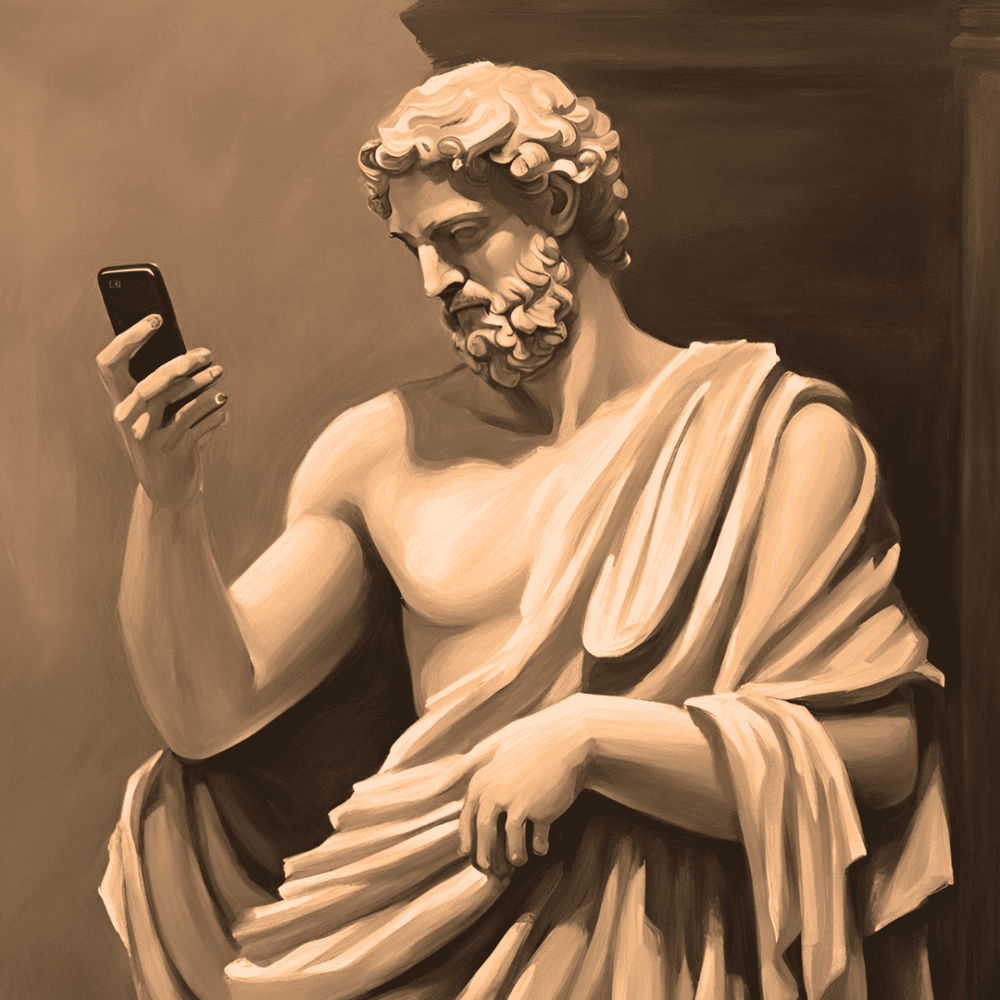I’m feeling in a fun mood, so I choose to have fun in one of the healthier ways: writing to connect different ideas that aren’t usually connected. And today I’m going to bring together two of my favorite universes: mental health and classic Greek and Roman philosophy, particularly, the Stoics. (Hi, Seneca! You’re not forgotten!).
Let’s start on the Greek/Roman side of things. In the modern world, when we’re introduced to ancient Greek or Roman philosophy — we’re taught about their love of Rhetoric (I still remember all my rhetorical devices: Zeugma, I’ll never forget you; Polyptoton, I still use you to this very day; Preteritio, I’ve so internalized you that I sometimes forget about you–but I never forget when my beloved classics professor JOD first introduced us together in that explosive night!), obsessions with logical constructions that we never quite understood why they needed to clarify so much what syllogisms are. And need I even mention all the esoterica that makes it hard for the modern mind to unwind what they were saying, no matter how good the translation. (Someone needs to translate Seneca to modern slang; indeed, Epictetus was a slave-turned-philosopher, so I can only imagine him talking in ancient Latin versions of street slang. The precise opposite of Monty Python’s moment of correcting a Roman peasant slave’s Latin grammar!).
I’m going to put forth the argument here that: all of this is a modern misreading of Attica of antiquity and its successor in Rome. All of the above are our images of it because our image comes from old schoolbooks and educational contexts. So we remember those details, not the human part of it. And since they were humans, each individual had highs and lows, challenges and emotions and problems and made mistakes, and got themselves into miniscule (or perhaps majiscule–does that word exist? It should!) catastrophes again and again.
And that is where the real power of ancient Greek and Roman philosophy comes in: it could be really an early form of CBT therapy.
Let’s Stoic thought, as the clearest example of this. What does Stoic philosophy teach us? To not blame ourselves. To put everything in perspective. To empathically understand others. How to control your intense emotional desires. How to manage your instinct to rage. How to channel the thoughts running around in circles in your head into healthy conversations.
That does sound familiar, doesn’t it?
Lest you think I’m exaggerating (the word “lest” is underused, I realize as I write it now), just go read some. They stand the test of time and sound more modern than almost anything else written that long ago. (Why does the Old Testament just have so many “begats” anyway? Now that really ages a text!).
Just to give you an example. I decided to open my book of Seneca’s Epistles to a random one, and I went to letter 51, and here is a line from it:
“And what is freedom, you ask? It means not being a slave to any circumstance, to any constraint, to any chance; it means compelling Fortune to enter the lists on equal terms.”
Yes, that’s written in an old-style and now how we’d say it today. People don’t really talk about how you might be a slave to civilization today, because slavery is most effective when rebranded to not be labeled slavery. (Perhaps rebranding it to “a 9-5 job” is much, much better marketing.) So let’s translate it into how we’d say today. I’ll take a shot: “You’re free when you don’t let your situation nor bad luck control you – no matter how bad it may be.” That sounds like great advice–and very healthy advice. And above all: very modern advice.
So, let’s wrap this around. Why was philosophy so popular in the ancient world? Not for their insistence on the importance of understanding what a “syllogism” is. But rather, because it served the same sort of role, and used even comparable approaches, to the best of modern health methods. People need “self-help” and mental health support (informal and professional) today; and people needed “self-help” and mental health support thousands of years ago. They did the same; just in very different words.
And if someone wants to translate Seneca or any other ancient thinker into modern slang, all I ask is 1% equity. Okay, okay, a cup of coffee is fine. Okay okay okay that might be too much, just a “thank you” in the footnotes. No no no, okay okay, you can just feel the good vibes of the thank you energy. I’d take that. Accepting what comes your way and you can’t control–like how you thank me for giving you my multi-trillion dollar (or at least multi-trillion peso) idea is something I can’t control–accepting it with positivity and a smile: now THAT is the Stoic way.







